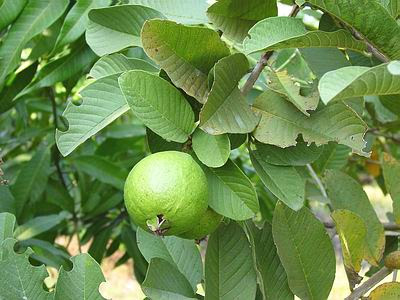4 Exotic Spices That Can Grow In Your Garden
Exotic spices used in cooking are often difficult to find locally. If you are a gourmet cook or just a person genuinely interested in cooking a variety of dishes then finding these spices with exotic names may be a problem. It is much easier growing these spices in your own spice garden. Not only is it more cost effective as these exotic culinary herbs are indecently expensive, but it also lends some greenery to your home. Whats more you get your spices garden fresh! All you have to do is find out the correct procedure to grow these herbs.
4 Exotic Spices For Your Garden:
1. Oregano: This spice may owe its popularity to a series of junk foods but there is no denying its exquisite aroma. Since this herb has caught on the imagination of the Indian foodie, specifically for pasta, lets see how to cultivate it. This spice loves subtle warm weather. Spring is the right time for planting this herb. They grow better from cuttings and you need not water it too much as they are used to growing in the arid conditions of Italy. Water it only when the soil begins to harden and pluck out the buds before they flower; they spoil the flavor of oregano.
2. Thyme: Thyme is a herb that is excellent for soups and grilled recipes and thus a favorite of the global health conscious Indian. This is herb that requires no pampering. It can adjust to any climatic condition; all you need is soil that drains easily. So hard or marshy soil will not do. This exotic spice can be planted in any season and you can harvest it all year long. It is difficult to acquire the seeds so grow it from cutting. It is a bush that has little space requirements
3. Rosemary: This spice with a lyrical sounding name is decidedly European. You can use it to flavor your food or a freshener for your home. You can plant it in a pot or as a shrub in the spice garden. The seed will take more than a year to sprout so it is more logical to use cutting. Rosemary like thyme is a hardy plant. It adapts to our climate well; in fact it is ideally suited for the coastal areas as it loves sea breeze. Just don't water the plant too regularly because it prefers to stay dry.
4. Mountain Pepper: You might be thinking what is so exotic about pepper but we are talking about a rare Australian variety of 'mountain' pepper. You may have read the name in sophisticated menus. It grows best at higher altitudes and cannot sustain in coastal climates. It requires cool temperatures and lots of moisture. You need a male and female pair to grow berries from mountain pepper and trust me, its worth the effort for the strong smell that hits you.
Exotic spices like common ones are great to grow at home because they are natural aromatherapy for you.
4 Exotic Spices For Your Garden:
1. Oregano: This spice may owe its popularity to a series of junk foods but there is no denying its exquisite aroma. Since this herb has caught on the imagination of the Indian foodie, specifically for pasta, lets see how to cultivate it. This spice loves subtle warm weather. Spring is the right time for planting this herb. They grow better from cuttings and you need not water it too much as they are used to growing in the arid conditions of Italy. Water it only when the soil begins to harden and pluck out the buds before they flower; they spoil the flavor of oregano.
2. Thyme: Thyme is a herb that is excellent for soups and grilled recipes and thus a favorite of the global health conscious Indian. This is herb that requires no pampering. It can adjust to any climatic condition; all you need is soil that drains easily. So hard or marshy soil will not do. This exotic spice can be planted in any season and you can harvest it all year long. It is difficult to acquire the seeds so grow it from cutting. It is a bush that has little space requirements
3. Rosemary: This spice with a lyrical sounding name is decidedly European. You can use it to flavor your food or a freshener for your home. You can plant it in a pot or as a shrub in the spice garden. The seed will take more than a year to sprout so it is more logical to use cutting. Rosemary like thyme is a hardy plant. It adapts to our climate well; in fact it is ideally suited for the coastal areas as it loves sea breeze. Just don't water the plant too regularly because it prefers to stay dry.
4. Mountain Pepper: You might be thinking what is so exotic about pepper but we are talking about a rare Australian variety of 'mountain' pepper. You may have read the name in sophisticated menus. It grows best at higher altitudes and cannot sustain in coastal climates. It requires cool temperatures and lots of moisture. You need a male and female pair to grow berries from mountain pepper and trust me, its worth the effort for the strong smell that hits you.
Exotic spices like common ones are great to grow at home because they are natural aromatherapy for you.









Comments
Post a Comment